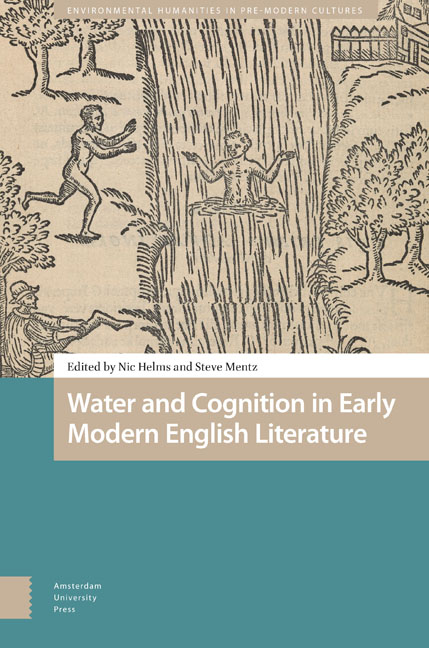Book contents
Afterword: Thinking Water
Published online by Cambridge University Press: 16 April 2024
Summary
Abstract
At first encounter, “water” and “cognition” seem like a paradoxical pairing. This Afterword goes on to suggest that these two terms and concepts share more than may be at first apparent. Cognition overspills brains and bodies, so that it entangles itself in environments and ecologies. Water, too, always sloshes out of its containers, and from the early modern period to the present this element has generated a vast body of metaphors and conventional wisdom about the flow of thoughts and experiences. Drawing on the arguments and insights of the essays in this volume, this Afterword concludes by pointing toward future inquiries and investigations.
Keywords: cognitive theory, extended mind, blue humanities, ecocriticism, environmental humanities, affordances
At first encounter, “water” and “cognition” seem like a paradoxical pairing. Water is fluid, running where it will; in Heraclitus's famous formulation, we cannot step into the same river twice. In contrast, “cognition” may seem hard and spiky, analytic, fixed. But as this collection shows, the two terms are not in opposition to each other. First, cognition is not simply “in the head”; like water, thinking spreads and seeps and leaks into the world. To label a process “cognitive” is not to relegate it to brainbound ratiocination; instead, our authors imagine “thinking” in rich and dynamic coordination with emotions, with the built and natural environment, and with the social world. Cognition is thus embodied, emotional, and deeply embedded in its cultural and material environments, which change across history and context. Cognition is acting: remembering, imagining, dreaming, gesturing, making, moving, grieving, forgetting, narrating. These “doing” verbs also remind us that thinking is always multiple, embedded and extended—that is, ecological.
And because “cognition” is always on the move, distributed across minds, bodies, artifacts, and other people, it is necessarily historical, shaped with and by the tools, environments, and socialities humans encounter, transform, and are subjected to. Since the concept of cognitive ecology is predicated upon the porous boundaries among mind, body, and world, a force as powerful and multi-variant as water is particularly well suited to this approach.
- Type
- Chapter
- Information
- Water and Cognition in Early Modern English Literature , pp. 303 - 308Publisher: Amsterdam University PressPrint publication year: 2024

